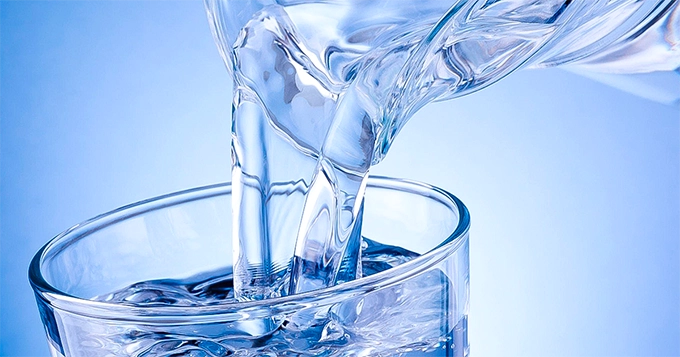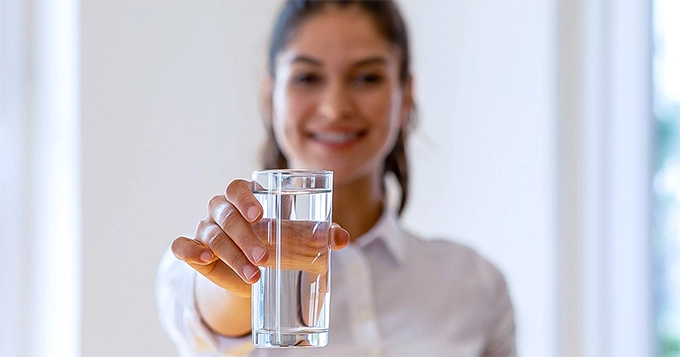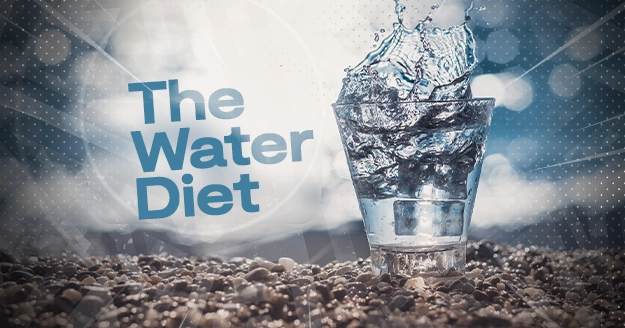Introduction
The water diet has become more well-known as a great weight-loss strategy in recent years. Some assert that consuming a lot of water helps them lose weight. But is there any truth to these claims? Let’s dive in and explore the effectiveness of the water diet for weight loss. But first, let’s define what the water diet is.
What is the water diet?
The water diet is a zero-calorie diet. It means you don’t eat and only drink two to three liters of water per day for 24–72 hours. Water fasting for longer needs medical supervision because of health risks.
Does the water diet work for weight loss?
The body will use fats as an alternative energy source if it cannot access carbs, its primary fuel source. Therefore, a fast may cause weight loss because the body burns down stored fat to provide energy.
So yes, a water diet can work for weight loss. But while the water diet may lead to weight loss in the short term, there is little evidence to suggest that it is an effective long-term weight loss solution. Consuming a lot of water will help fill the stomach and lessen appetite, which may result in consuming fewer calories. This is only a temporary effect, though. Any weight lost while on the water diet will probably be gained back once the person resumes eating.
Benefits of the Water Diet
- Provides oxygen to your organs
To work, our organs need water. Correct hydration ensures the brain has access to the oxygen it requires through blood currents to carry out its activities.
- Cleans kidneysThe kidneys’ ability to carry out the diuresis process, which results in urine, is made possible by water. Water reaching the kidneys and removing toxins and other waste materials allows this discharge.
- Helps absorb the right nutrientsWater must function as a solvent in order for nutrients to be absorbed and transferred from the blood to cells.
- Helps you get a healthier skinThe diet improves your hydration which can make your skin look much healthier because it will be more hydrated and elastic.
Risks and Side Effects of the Water Diet
- Dehydration and electrolyte imbalances
During a water fast, dehydration can lead to headaches, cramping in the muscles, dry mouth, weariness, and dizziness if enough water isn’t consumed or electrolytes aren’t added.
- Nutrient deficiencies
Even though a single water fast would not result in significant nutrient deficits, repeated water fasting sessions may leave you deficient in vitamins, minerals, or protein.
- Orthostatic hypotension
Orthostatic hypotension is the abrupt drop in blood pressure after standing or sitting up quickly. You may be more susceptible to this problem during fasting if you take blood pressure drugs.
- Gout flare-ups
Fasting may raise your blood uric acid levels, which could trigger a flare-up of gout, which causes painful swelling and inflammation in your joints.
- Diabetes complications
Fasting occasionally can cause dangerously low blood sugar levels, which is terrible news if you regularly take insulin or other diabetic drugs.
- Promotion of disordered eating
Those with a history of disordered eating may discover that fasting exacerbates their eating habits.
Other side effects while fasting includes:
- hunger
- excessive thirst
- fatigue
- muscle cramps, especially at night
- headaches
Conclusion
The water diet may help you lose weight quickly, but it is not a long-term solution. Additionally, if practiced for an extended period of time, it can be harmful and result in major health issues. Before beginning the water diet, like any diet or weight-loss regimen, it is crucial to speak with a healthcare expert.








